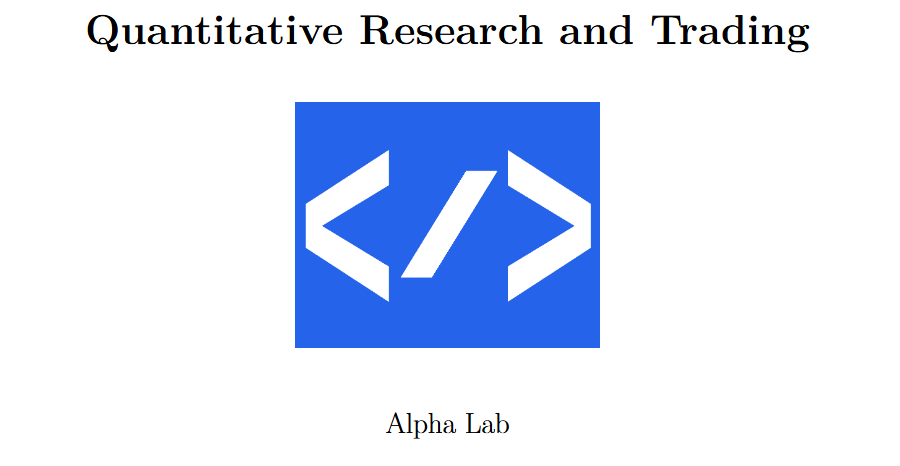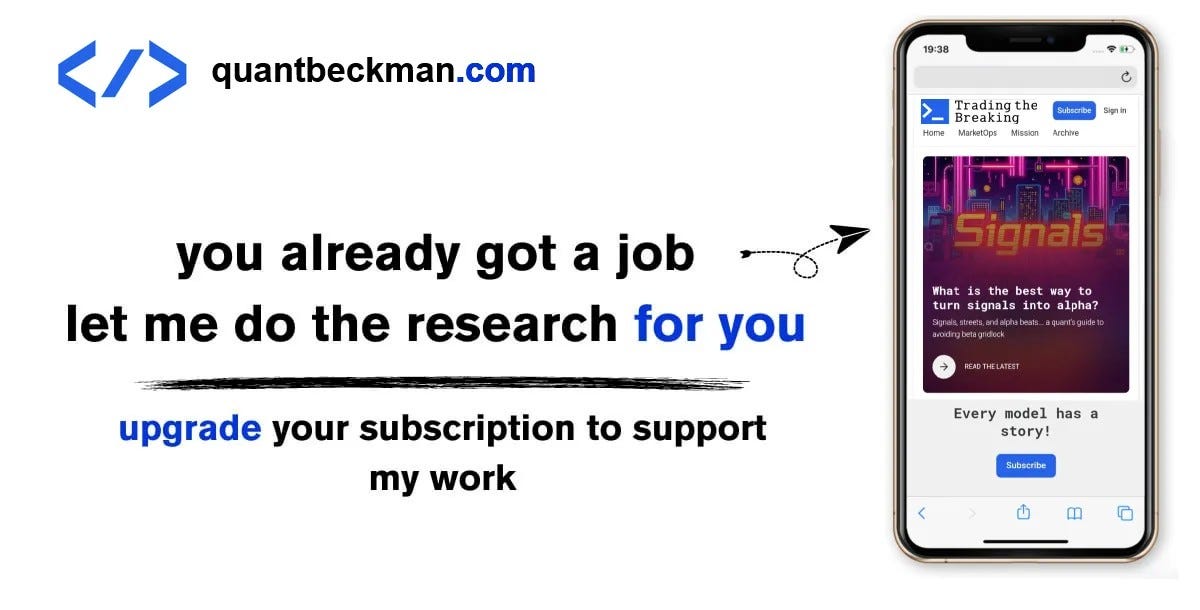Career: The ultimate Roadmap to become a Quant
A step-by-step guide to mastering quantitative research in finance
Table of contents:
Introduction.
Why become a quant?
Math bootcamp or, how to fall in love with calculus again.
Programming languages—if math is the engine, coding is the steering wheel.
Data analysis—no overfit here please.
Job opportunities—or which doors to knock on.
Introduction
Before you read any further, a quick disclaimer: The most effective path to becoming a quant is a structured one—pursue a degree in Data Science or Computational Mathematics, follow it with a postgraduate program in Mathematical or Financial Engineering, and secure an internship at a firm that truly delivers results.
However, if you already have a solid foundation and a profitable edge, working for a firm will simply provide leverage for your existing strategies.
Data science → Mathematical engineering → Intership → Leverage.
Here are the links to the study plans of some Spanish universities offering these degrees, in case you're around—you will find the masters also there:
UOC—online.
Viu—online.
Carlos III—on-site.
Okay! Let’s start with the basics: what even is a quant?
Imagine a hybrid creature—half mathematician, half programmer, with a dash of Gordon Gekko’s confidence (but better hair). Quants use math, stats, and code to predict financial markets, design trading algorithms, and occasionally argue with Excel spreadsheets until 3 a.m.
I translate it for you:
A professional who applies mathematical models, statistical techniques, and programming skills to analyze financial markets and securities.
They develop algorithms and models to identify trading opportunities, manage risks, and optimize investment strategies.
In essence, quants are the architects of modern financial analysis, blending theoretical knowledge with practical application.
Why become a quant?
You get to say I solve PDEs for fun at parties (and watch everyone leave).
You’ll earn enough to afford avocado toast and retirement (or at least a nicer gaming chair).
You can blame all your mistakes on market volatility (or Mercury retrograde).
No jokes! But a part of that:
Intellectual challenge: Engage in complex problem-solving that keeps your analytical skills sharp.
Financial reward: Competitive compensation packages that reflect the high demand for specialized skills.
Dynamic environment: Operate in fast-paced settings where innovation and agility are paramount.
Impactful work: Contribute to financial decision-making processes that influence global markets.
Some resources to start with:
Books:
The Concepts and Practice of Mathematical Finance by Mark S. Joshi.
Quantitative Finance by Paul Wilmott.
Inside the Black Box by Rishi K. Narang.
Algorithmic and High-Frequency Trading by Cartea, Jaimungal, and Penalva.
Advances in Financial Machine Learning by Marcos Lopez de Prado.
Hands-On Machine Learning with Scikit-Learn, Keras, and TensorFlow by Aurelien Geron.
Designing Data-Intensive Applications by Martin Kleppmann.
Options, Futures, and Other Derivatives by John C. Hull.
Financial Markets and Institutions by Frederic S. Mishkin.
Online articles:
Quantitative Finance: Concepts, Tools, and Career Paths [link].
The vast majority of these resources can be found in Anna’s archive. So take a look and feel free to explore! Besides, in the appendix at the end, I’ll provide you with plenty of material for your bedside reading. You need an area of domain so, take a look at it!
Now that you’re sold, let’s talk about the skills you’ll need. Spoiler: It’s not just being good at Sudoku.
Math bootcamp or, how to fall in love with calculus again.
Quants eat math for breakfast because a solid foundation is crucial for any aspiring quant.
The following areas are particularly pertinent:




